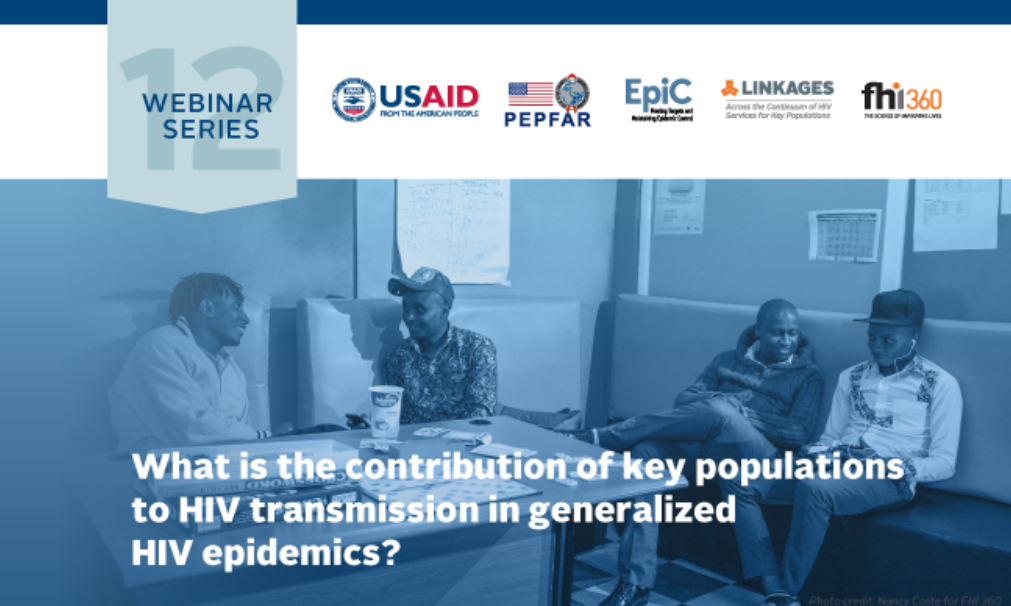Event Date
Mar 19
2020
Webinar hosted by the LINKAGES and EpiC projects as part of the Key Populations: Evidence in Action series.
To access the audio recording of the webinar, please click here.

On March 19th, the USAID– and PEPFAR-supported LINKAGES and EpiC projects hosted the twelfth webinar in a webinar series entitled Key Populations: Evidence in Action. This webinar explored findings from new mathematical modelling studies that show that key populations and their sexual partners contribute a significant proportion of new HIV infections in epidemics in countries across sub-Saharan Africa. In addition, presenters shared the results of these novel studies that estimated the contribution of unmet needs among key populations to HIV transmission in Cameroon, Senegal, and South Africa, and discussed the implications for achieving epidemic control.
Tisha Wheeler, USAID Office of HIV/AIDS
Moderator
Sharmistha Mishra, University of Toronto
How do you really know your HIV epidemic? Introducing the transmission population attributable fraction to inform the next generation of epidemic appraisals
Marie-Claude Boily, Imperial College London
Impact of past interventions and the role of unmet HIV prevention and treatment needs on HIV transmission among key populations in Yaounde, Cameroon
Stefan Baral, Johns Hopkins University School of Public Health
Modeling unmet HIV prevention and treatment needs among key populations in Senegal
Greg Millett, amfAR
Stumbling blocks for a more efficient HIV response targeting key populations
This webinar series is intended to be a platform for (1) sharing state-of-the-art knowledge, emerging evidence, and promising practices for achieving greater impact on the HIV epidemic through programs for key populations; (2) addressing pressing questions and controversial issues from the perspective of key population experts and community members; and (3) fostering dialogue among a broad set of partners working in key-population-focused research, programming, and advocacy.
The webinars will cover a range of topics, including introduction and scale-up of HIV self-testing and pre-exposure prophylaxis for key populations; cascade monitoring and data use; information and communication technology-based interventions; effective strategies for addressing violence, stigma, and discrimination; differentiated models for delivering antiretroviral therapy; and community empowerment.
This webinar series is open to anyone interested in key populations, including program implementers, researchers, policy-makers, advocates, funders, and community members.
